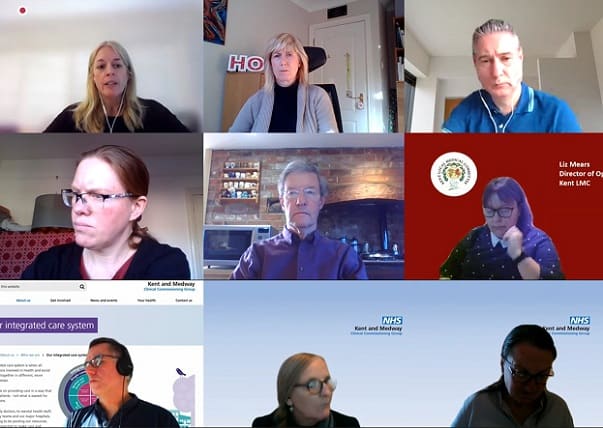
By Local Democracy Reporter Ciaran Duggan
The county’s 200 GP surgeries have a combined deficit of around £1.4million amid growing costs from the pandemic.
Kent and Medway’s Clinical Commissioning Group (CCG), which oversees the management of healthcare, says there has been an “overspend” in the £170m budget allocated for primary care services in the 13 districts between April 2020 and April 2021.
However, Richard Flack, the CCG’s finance spokesman, said the latest shortfall marked an “improvement” from October when the deficit was £300,000 higher.
He told a panel of GPs last Thursday: “We are expecting the position to improve month on month until we anticipate breaking even financially.”
At the virtual meeting four days ago, Gillian Wells, who is the chair of the Kent CCG’s primary care committee, said: “We are moving in the right direction.”
GPs are often the first point of contact for anyone with a physical or mental health problem. They treat all common medical conditions and refer patients to hospitals.
A CCG report says the majority of financial outgoings for the service include staff payments and running costs of GP surgery buildings.
Meanwhile, NHS England last month established a £150m emergency grant fund to expand the capacity of GP surgeries until March 31, 2021.
This would equate to around £22,000 for each practice in the country and help to finance the recruitment of much-needed extra staff.
But some Kent GPs are concerned about the lack of scrutiny over spending pledges carried out by practices.
Dr Mike Von Fraunhofer, one of the CCG committee members, warned the cash boost was a “substantial” amount of tax payers’ money.
He said: “The cynical part of me thinks that someone could try and skip the system and quite happily ignore the priorities.
“What is to stop an unscrupulous GP sticking £20,000 in their pocket and not bother to put on extra clinics?”
Health boss Bill Millar, the Kent CCG’s director of primary care, said their aim was to “develop trust” with GPs and “limit” the number of conditions attached.
He said: “The CCG is not seeking to make the process onerous for general practices.
“We want to give staff flexibility to use the resource and support the pressures they are under. We have to trust practices to get on with supporting patients.”
In July, Kent CCG bosses said virtual GP appointments could be a long-term legacy of Covid due to “major uptick” in patients being seen by their doctors via phone or video calls, rather than face-to-face.

